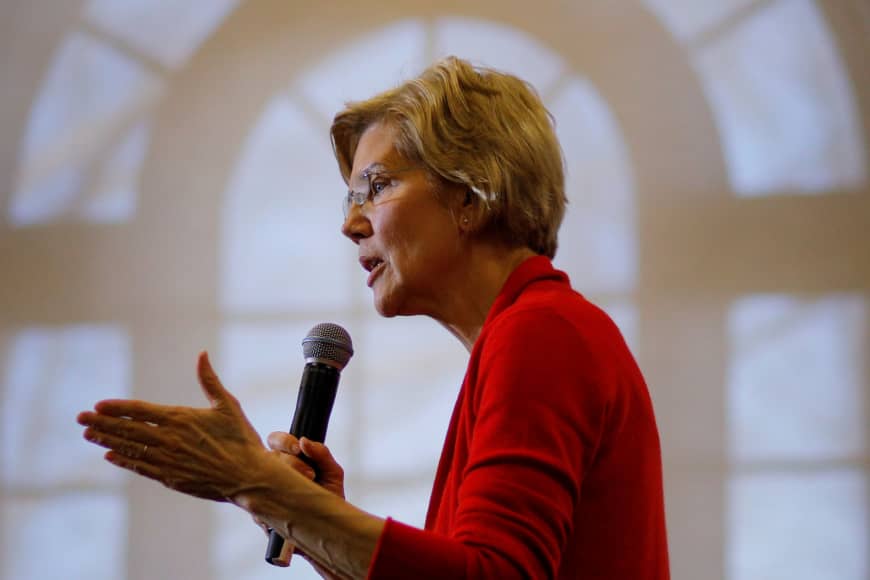Silicon Valley Versus Elizabeth Warren
Senator Elizabeth Warren has announced her intention to aggressively regulate large tech firms as part of her presidential platform.
Mar 18, 2019
2020 Presidential hopeful Elizabeth Warren has recently found herself embroiled in conflict with some of the largest technology companies in the United States. Among the many proposals in her new platform, the Democratic candidate calls for the breakup of large tech companies, like Google, Amazon and Facebook. One of her advertisements outlined this plan and was aired on Facebook before the company took it down. Citing a breach in copyright for the use of the company logo, Facebook retracted the ad for a short period of time. After a Politico story on the controversy came out, Facebook decided to begin playing the advertisement again, “in the interest of allowing robust debate.”
In a wide open field for the Democratic candidacy for President, Senator Warren is among the front-runners and is already an established figure in American politics. She is not the only one to call for restrictions on tech conglomerates, but she may very well be the most influential person on the Democratic ballot to formally endorse drastic action against companies like Google and Facebook as a general principle towards conglomerates, rather than restrictions against the individual companies.
“Senator Warren represents one of the most left-leaning bases of the Democratic front-runners, and her stance on conglomerates seems to fit that mold,” senior Alex Anton said.
This has become an issue of the classification and enforcement of antitrust legislation. Senator Warren’s unreasonable and excessive proposals belong to a growing minority of mainly left-wing politicians that see the recent mergers of tech companies as steps towards monopolies and clear violations of antitrust policies. She is among those who wish to take a very aggressive course of action, which entails treating companies like Facebook and Amazon as utilities and banning them from owning other companies on that platform. This would essentially separate Google Search from the rest of the company, and Amazon marketplace would split from AmazonBasics businesses. Warren is also a proponent of revisiting some acquisitions made by Facebook and Google, like Instagram and Double Click. These mergers are thought to be anti-competition by Warren and many of her colleagues.
Facebook’s recent information-sharing scandal has paved the way for many lawmakers to seek restrictions on the power of the top companies in Silicon Valley. During the Obama administration, technology companies enjoyed the freedom to grow and become a mainstay in the American economy. Some, including Senator Warren, now fear that these companies have grown too large and pose an existential threat to competition in the tech industry. Warren’s approach is among the most aggressive, but could very well take years to effectively execute. Litigation to undo the mergers carried out by companies like Amazon, Google and Facebook could take years. Not to mention the possibility that the courts rule in favor of the companies, as the Supreme Court just did in an antitrust case between American Express and various U.S. states. Different solutions to the very same problem have been proposed by some in the industry, many of which are far more centrist than Senator Warren’s proposal. These include multi-stakeholder arrangements, non-binding guidance standards and third party governance. The perceived danger of technology conglomerates to capitalist principles in the industry is overblown in the wake of Facebook’s scandal, and should not be met with such force as to completely restructure the way Silicon Valley’s, and therefore America’s, top companies do business.












